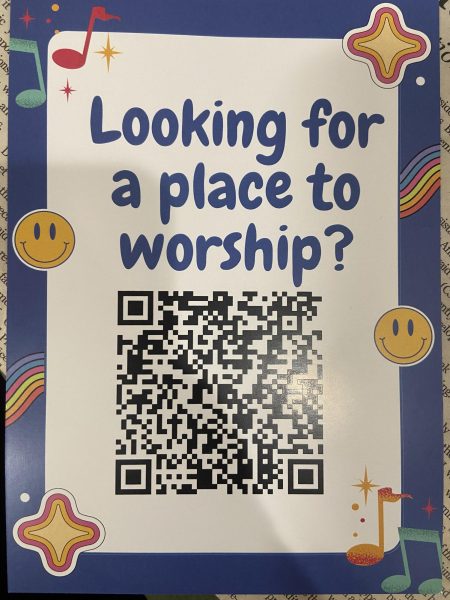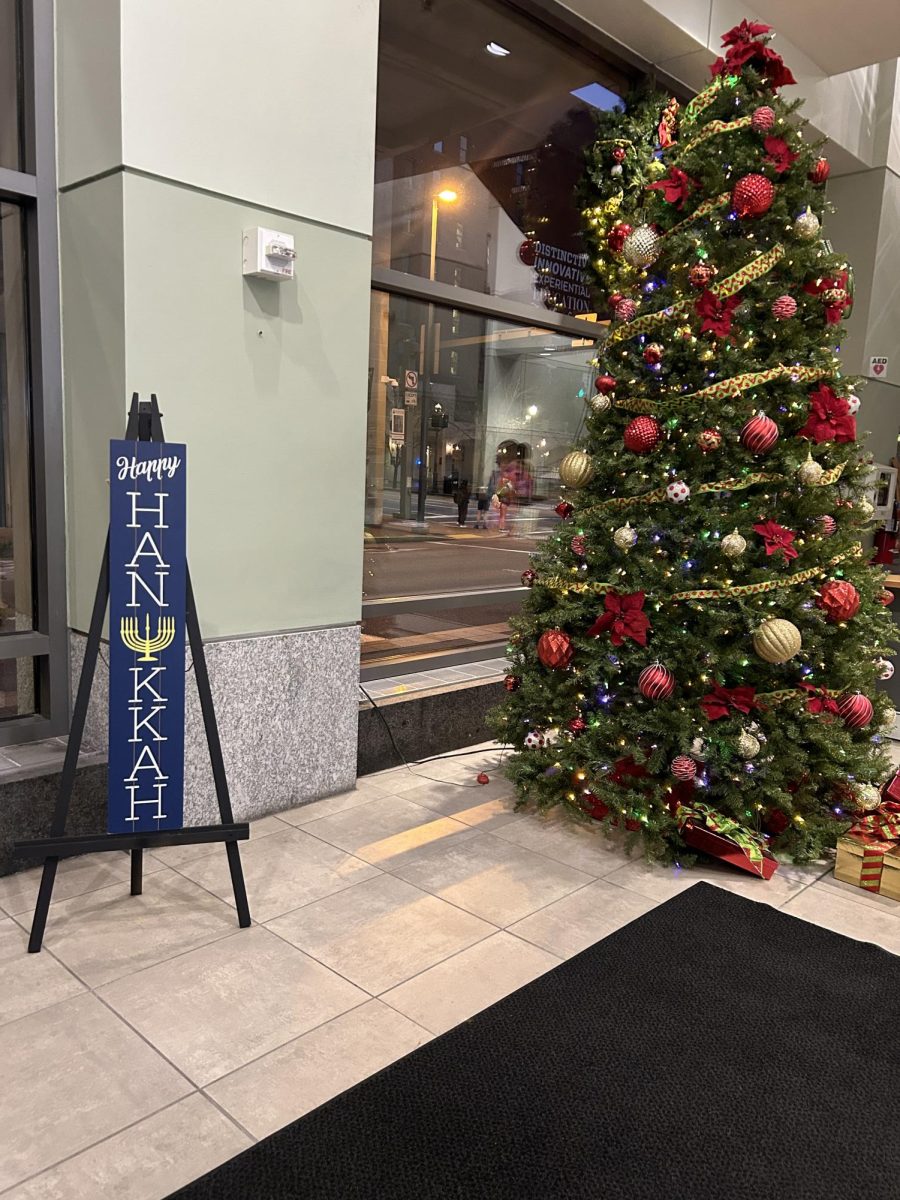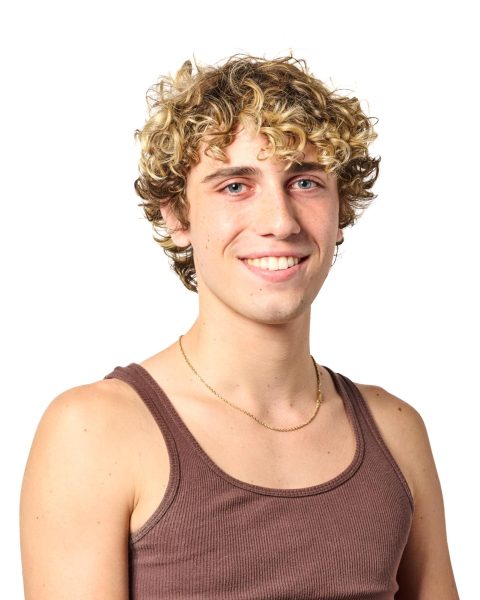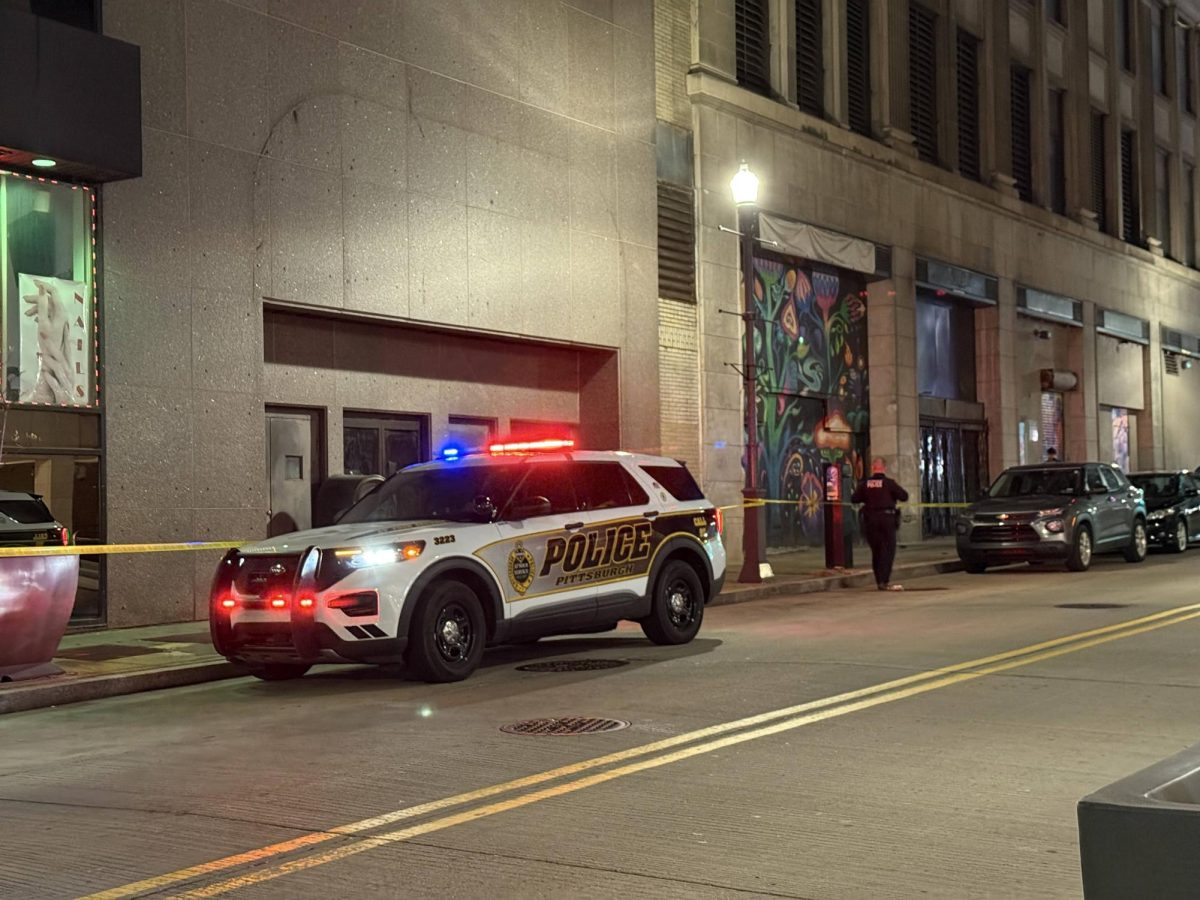As the Point Park holiday break approaches, organizations are trying to squeeze in holiday celebrations before campus closes on December 22 and reopens on January 1.
“The university does not host events when closed,” Michael Gieseke said, Dean of Student life.
All scheduled holiday events are held before the break. Jennifer McCurry, Coordinator of Spiritual Life helps organize these events. She said that the way that the holidays are celebrated at Point Park varies each year.
Last month the Coalition for Christian outreach student organization did a service project for Operation Christmas Child McCurry said.
According to McCurry, an off campus ministry group named Habad will come in on Wednesday, Dec. 13 to hand out Hanukkah treats to students with Point Park’s Shalom club. Around the same time the organization plans to assist the school in acquiring a six to 10 foot menorah for a lighting ceremony.
“This year with the timing of Hanukkah it makes it more possible to honor that holiday because it’s during the semester,” McCurry said.
In the Academic Hall lobby there is a Christmas tree and a Hanukkah sign displayed. Senior Gavin Anderson and broadcast production major reflected campus decorations.
“I like how everything is decorated,” Anderson said. “But we have a lot of backgrounds here and it is all very Christmas centered. A menorah wouldn’t hurt.”
Shalom club has been in communication with Habad. According to Shalom club President Trevor FitzSimmons, the club’s purpose is mainly to educate students about the Jewish practices.
Every night of Hanukkah, FitzSimmons lights his electric menorah in his dorm room.
FitzSimmons is also vice president of SGA, a senior political science major, and one of countless Jewish students in the greater Pittsburgh area who devotes his nights to practicing his faith.
Hanukkah is one of many non-Christian holidays that falls around the time where finals are traditionally held. This year’s celebration takes place from December 7 through 15, the last day of finals.
Kira Laws, senior Psychology major, reflected on how she felt about Point Park’s Holiday celebrations in the past.
“I feel like they decorate decently for different celebrations, but as far as events go they are very Christian,” Laws said. “There are a lot of Christmas events but not really ones for holidays like Hanukkah and Kwanzaa.”
Along with education, the Shalom club is trying to solve this issue with Pastor McCurry. Yet, Hanukkah is not the largest Jewish celebrated holiday, that celebration, or week of mourning is Yom Kippur.
In Hebrew, Hanukkah means “dedication,” and the holiday marks the rededication of the Temple in Jerusalem in the 2nd century BC, after a small group of Jewish fighters liberated it from occupying foreign forces. With the tiny supply of ritually pure oil that they found in the temple, they lit the menorah, and it stayed lit for eight days.
For some students finals may conflict with their candle lighting at sundown. Although because the bigger holidays like Yom Kippur and Rosh Hashanah have already passed it depends on how religious the person is, FitzSimmons said.
“Hanukkah is mostly celebrated at night, so the only conflict would be with lighting the candles at night if you have a night class. Some people are strict though, and light the candles right at sundown, so they would probably need an exemption for that,” FitzSimmons said.
Point Park’s official religious exemption policy allows any person practicing a religion that interferes with finals to acquire an exemption, as long as they give advance notice. The policy does not specify how many days prior are required.
Recent global events, namely the Israel-Hamas conflict, have given merit to anti-semitism around Pittsburgh, a city already riddled with it after the Tree of Life shooting.
Even before the conflict, the Jewish Federation of Greater Pittsburgh logged 82 reports of antisemitic incidents in the city. This year, that number peaked at 237 by the end of October.
FitzSimmons said, “In the past couple of years it’s been very concerning especially since a lot of Holocaust survivors are becoming old and passing away.”
“I think it’s bad, but people could easily come together. Judaism is about togetherness and peace, and the religious aspect doesn’t really matter. It’s just about being good and helping people,” FitzSimmons said.
Although there are no on campus events while campus is closed throughout the holiday, Pastor McCurry recommended that students scan the printed barcode to find a local religious community in and around Pittsburgh that could help them celebrate.

In a survey by Pastor McCurdy sent out to freshman students this semester about their spirituality and religious beliefs, in the 321 responses, 21.8% preferred not to respond about their beliefs. 13.8% said they are Agnostic. 11.5% said they are atheists. 16.8% said they are Catholic. 7% said they are spiritual but not religious. 1.6% said they are Jewish.








